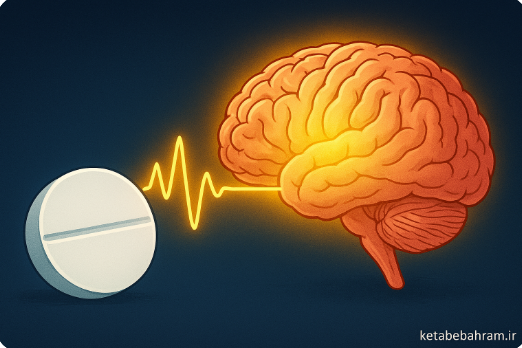The Placebo Effect: Why Can Our Brain Make a Fake Medicine Real?
🔹 Introduction
Imagine you're ill, and a doctor gives you a pill, telling you it’s the best treatment for your pain. You take it, and after a while, you genuinely start feeling better. But later, you find out that the pill was just a piece of sugar or compressed flour! This is the fascinating and scientific phenomenon known as the Placebo Effect.
The placebo shows that the human mind not only affects emotions and behavior but can also have a real impact on the body—sometimes making a “fake medicine” work effectively.

🔹 What is Placebo?
The word Placebo comes from Latin and means "I shall please."
In medicine, a placebo is any treatment that has no therapeutic effect: a pill without an active ingredient, a saline injection, or even a sham surgery!
Strangely enough, in many cases, patients really improve after receiving a placebo.
🔹 How Was the Placebo Effect Discovered?
In the 18th century, doctors sometimes performed sham treatments, and patients showed improvement.
However, the placebo effect drew serious attention during World War II. Dr. Henry Beecher, when morphine was scarce for injured soldiers, injected them with saline, and many truly felt relief.
He later called this phenomenon the "healing power of the mind."
🔹 How Does the Brain Get Deceived?
The placebo effect is not just a mental illusion. Neuroscientific research has shown that:
- Release of Natural Chemicals: When a patient believes a medication is effective, the brain releases endorphins (natural painkillers) and dopamine.
These chemicals activate the same pathways that real medicines target.
Activation of Specific Brain Areas: fMRI scans have shown that the placebo can activate brain centers responsible for pain, pleasure, and immune system function.
Expectation and Prediction: When we expect to feel better, the brain adjusts neural networks in a way that truly reduces symptoms of the illness.
🔹 Why Does the Body Respond for Real?
Conditioned Learning: Like Pavlov's dog experiment, the body learns to react therapeutically when it "sees" a pill.
Power of Belief: The stronger the trust in the doctor or the medicine, the more potent the placebo effect.
Cultural Context: In societies where people have more faith in a particular medicine or treatment, the placebo effect tends to be stronger.
🔹 Strange Examples of the Placebo Effect
Larger Pills or Injections: Even if they're ineffective, these have more impact than smaller pills because the patient's belief is stronger.
Sham Surgeries: In some experiments, patients received fake surgeries (without real procedures) and later reported symptom improvement!
More Expensive Placebos: When told a medicine is expensive, the placebo effect tends to be stronger.
🔹 The Nocebo Effect
In contrast to the placebo, if a patient believes a medicine is harmful—even if it's ineffective—they may experience real side effects.
Example: Patients who received a “fake drug” but expected it to cause headaches or nausea experienced exactly those symptoms!
🔹 Placebo and Medical Research
The placebo effect is so powerful that nowadays, all new drugs must be tested in double-blind clinical trials:
- One group receives the real drug.
- Another group receives the placebo.
Neither the patient nor the doctor knows who is getting the real treatment, ensuring an unbiased result.
If a drug can’t perform better than a placebo, it’s essentially useless.
🔹 Limitations of the Placebo Effect
Placebo cannot cure serious diseases like cancer or dangerous infections.
Its effect is more evident in symptoms (like pain, stress, or mild depression).
Nonetheless, understanding the placebo mechanism could help in designing better treatments.
🔹 Conclusion
The placebo effect shows that the boundary between mind and body is not clear-cut. Belief and expectation can alter the brain's neural and chemical pathways.
In other words: sometimes, it’s enough for the brain to believe a treatment is happening for the body to make it real.
This secret reminds us that alongside scientific drugs and treatments, the human mind and belief hold an astonishing power for healing and health.
